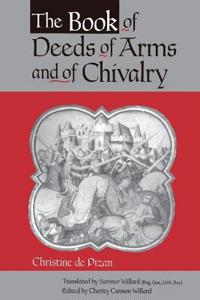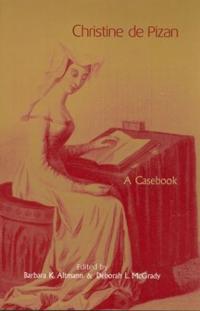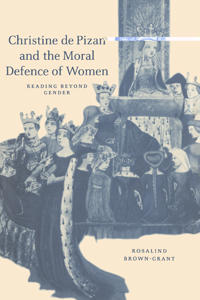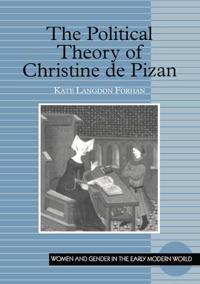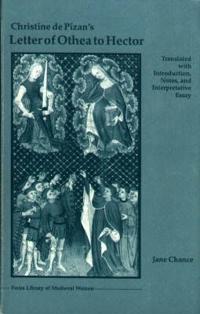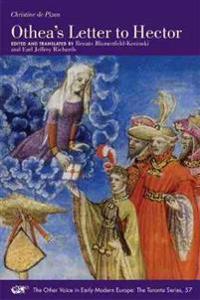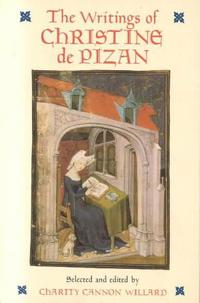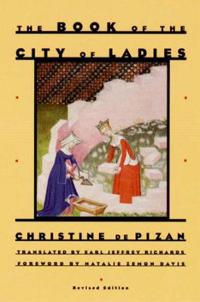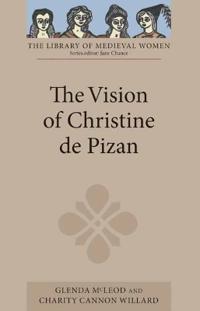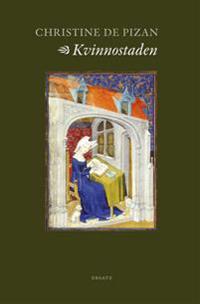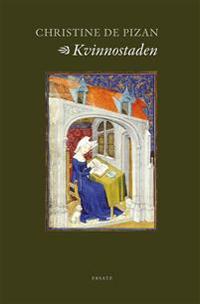The Book of Deeds of Arms and of Chivalry (Häftad)
avChristine, Christine de Pizan
ISBN: 9780271018812 - UTGIVEN: 199904It is unexpected in any era to find a woman writing a book on the art of warfare, but in the 15th century it was unbelievable. Not surprisingly, therefore, Christine de Pizan's "The Book of Deeds of Arms and of Chivalry", written around 1410, has often been regarded with disdain. Many have assumed t[...]
The Selected Writings of Christine De Pizan (Pocket)
ISBN: 9780393970104 - UTGIVEN: 1997-01This Norton Critical Edition presents selections from eighteen of Christine s major works in fresh, contemporary translations. Each text is fully annotated and is accompanied by an introduction placing it in the context of Christine s oeuvre and tracing the literary developments and the historical s[...]
Christine de Pizan (Inbunden)
ISBN: 9780415939096 - UTGIVEN: 200302Christine de Pizan wrote voluminously, commenting on various aspects of the late-medieval society in which she lived. Considered by many to be the first French woman of letters, Christine and her writing have been difficult to place ever since she began putting her thoughts on the page. Although her[...]
Christine De Pizan and the Moral Defence of Women (Häftad)
avRosalind Brown-Grant
ISBN: 9780521537742 - UTGIVEN: 200309Christine de Pizanâs Livre de la Cité des Dames (1405) is justly renowned for its full-scale assault on the misogynist stereotypes which dominated the culture of the Middle Ages. Rosalind Brown-Grant locates the Cité in the context of Christineâs defence of women as it developed over a n[...]
The Political Theory of Christine De Pizan (Häftad)
avKate Langdon Forhan
ISBN: 9780754601746 - UTGIVEN: 200204Christine de Pizan held no political office and her work was not influencial on any political theorist living today. However, in the disciplines of women's studies and French literature she has inspired intellectual debate, so much that the two sides of the debate are referred to as Christinophiles [...]
Christine de Pizan's Letter of Othea to Hector (häftad)
ISBN: 9780859914406 - UTGIVEN: 1997-07Christine de Pizan (1364-?1430) was the first French woman poet to make her living by the pen, and the first female interpreter of classical myths; she held enormous power in the French court and influenced late medieval culture in France and in England in a number of ways. The Letter of Othea to He[...]
Christine de Pizan (häftad)
ISBN: 9780866985772 - UTGIVEN: 2017-01Othea's Letter to Hector, one of Christine de Pizan's most popular works, is at the same time one of her most complex creations. Combining a somewhat Sibylline verse text based on a mythological figure with extensive citation of pagan sapiential authorities, the Bible, and the Church Fathers, it sho[...]
The Writings of Christine De Pizan
ISBN: 9780892551880 - UTGIVEN: 1993-12Christine de Pizan (1364-1429?), France's first woman of letters, is widely known for her Book of the City of Ladies (Persea, 1982), a classic work of revisionist history that seeks to show that women are the moral and intellectual equals of men. In recent years, Christine has taken her place within[...]
The Book of the City of Ladies (Häftad)
avChristine de Pizan, Earl Jeffrey Richards, Natalie Zemon Davis
ISBN: 9780892552306 - UTGIVEN: 1998-06Christine de Pizan was born in 1365 in Venice. Her family moved to Paris three years later when her father was appointed court astrologer to King Charles V. Close ties to the royal court and her father's encouragement enabled Christine to obtain a good education, unusual for women of her time. At th[...]
The Vision of Christine De Pizan (Häftad)
ISBN: 9781843842989 - UTGIVEN: 2012-03Christine de Pizan's 'The Vision' is both a powerful contemporary response to the chaos that would eventually precipitate Henry V's invasion of France, and a fascinating view of the author's own progress as a woman reader, writer, and public commentator in the late Middle Ages. As a long-time intima[...]
Kvinnostaden (Inbunden)
avChristine de Pizan
ISBN: 9789186437480 - UTGIVEN: 201203»Hittills har många kloka och rättfärdiga människor berömt kvinnornas verk, utan att kvinnorna själva skrivit en bok om dessa ting. Vad gäller tiden som har gått utan att deras anklagare och belackare har blivit bemötta, säger jag dig bara, att i evigheten har var sak sin tid.« - Christ[...]
Kvinnostaden (e-bok)
avChristine de Pizan
ISBN: 9789186437909 - UTGIVEN: 201206»Hittills har många kloka och rättfärdiga människor berömt kvinnornas verk, utan att kvinnorna själva skrivit en bok om dessa ting. Vad gäller tiden som har gått utan att deras anklagare och belackare har blivit bemötta, säger jag dig bara, att i evigheten har var sak sin tid.« - Christi[...]

